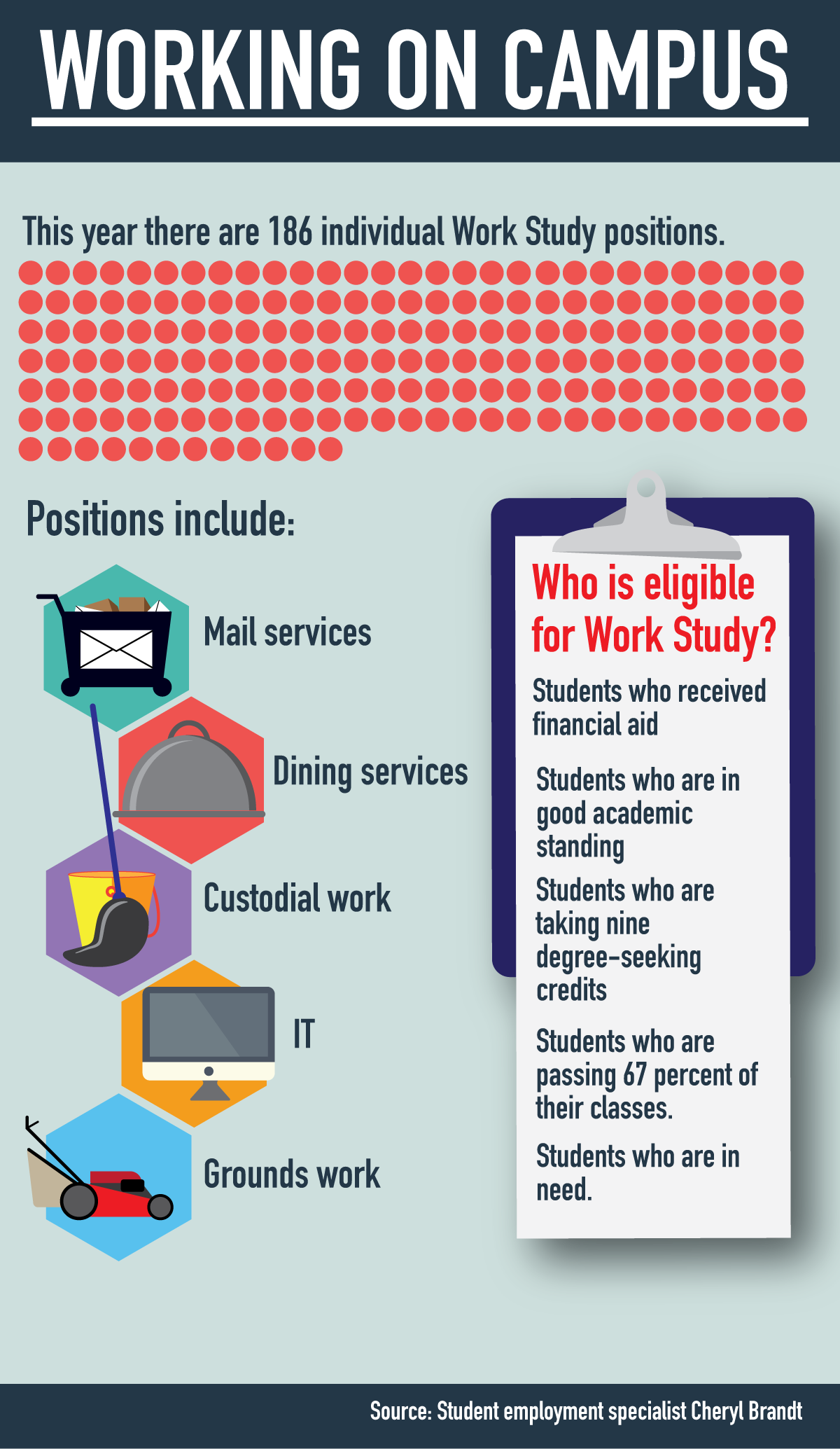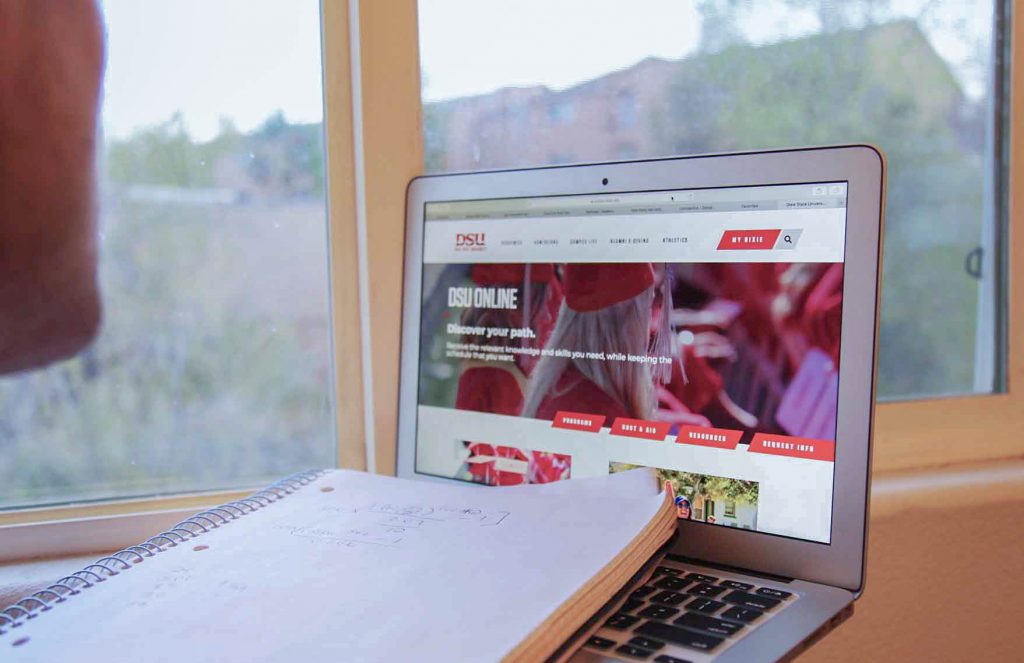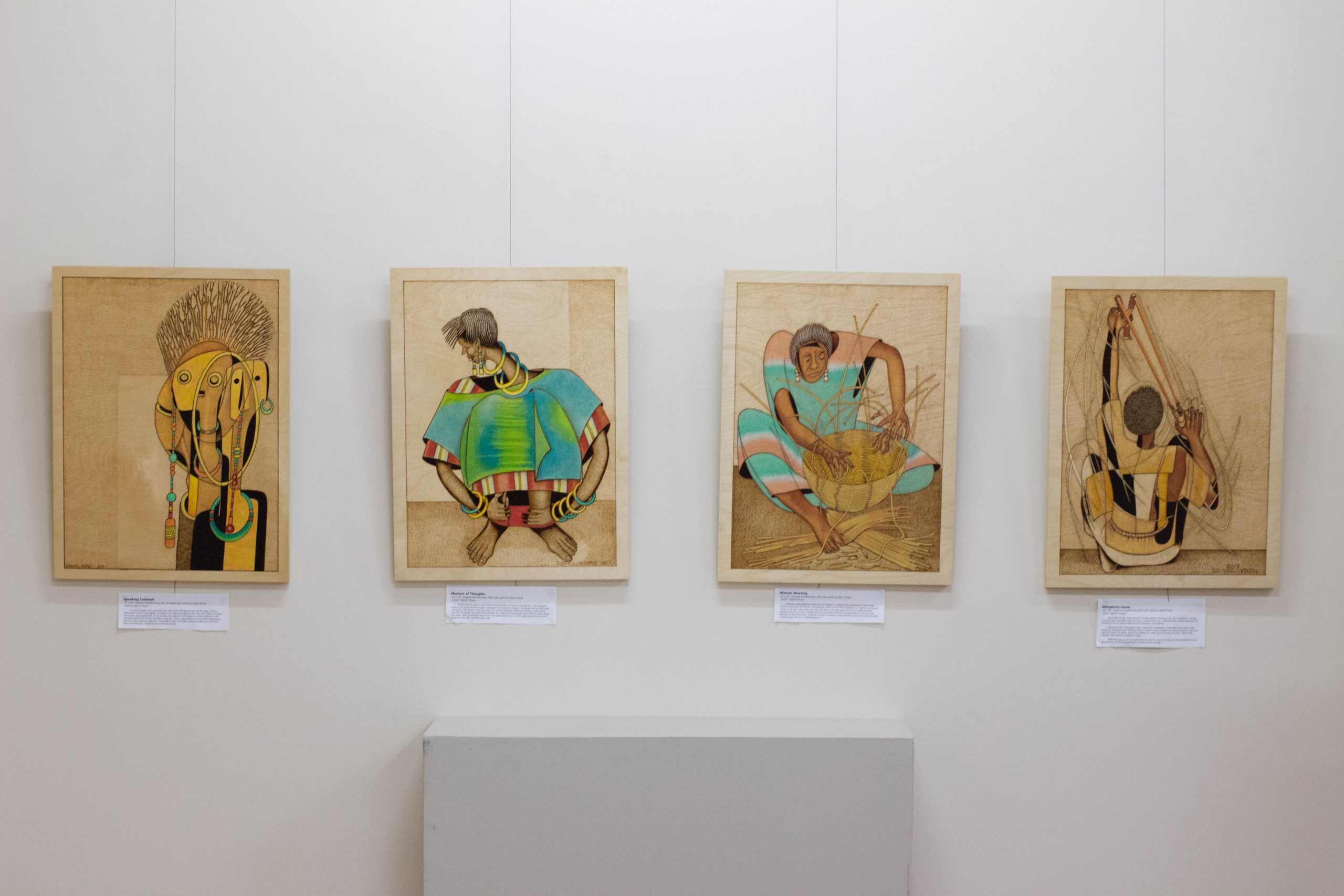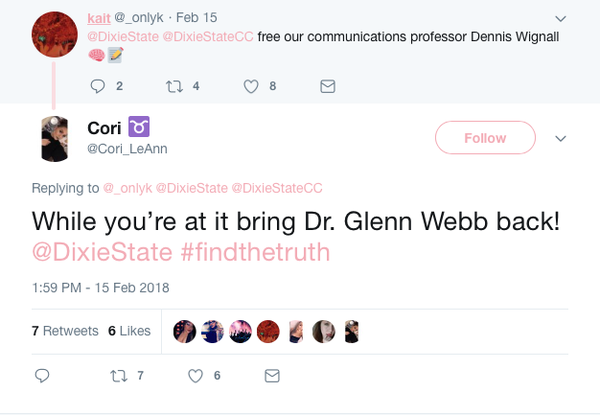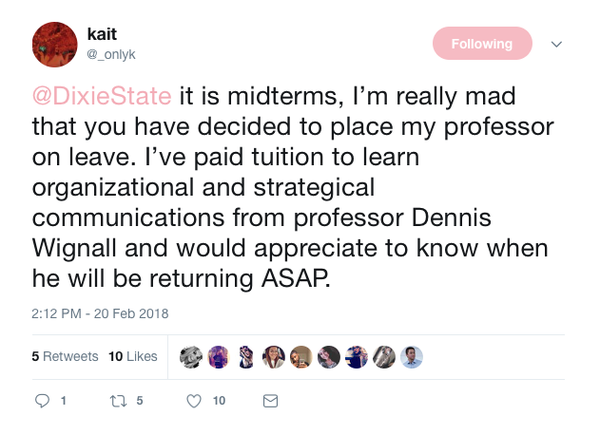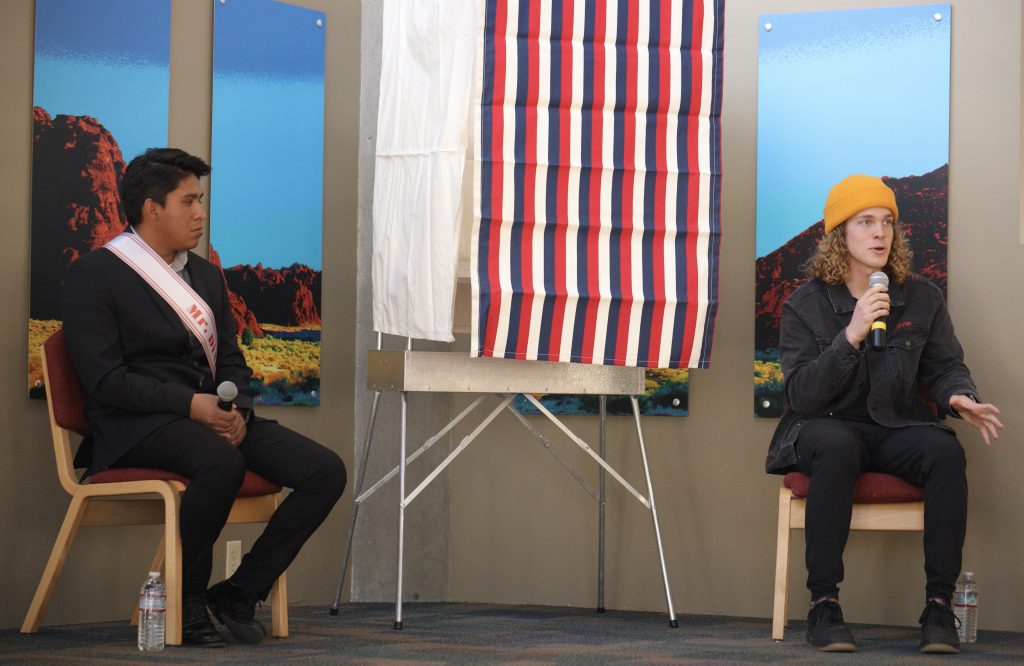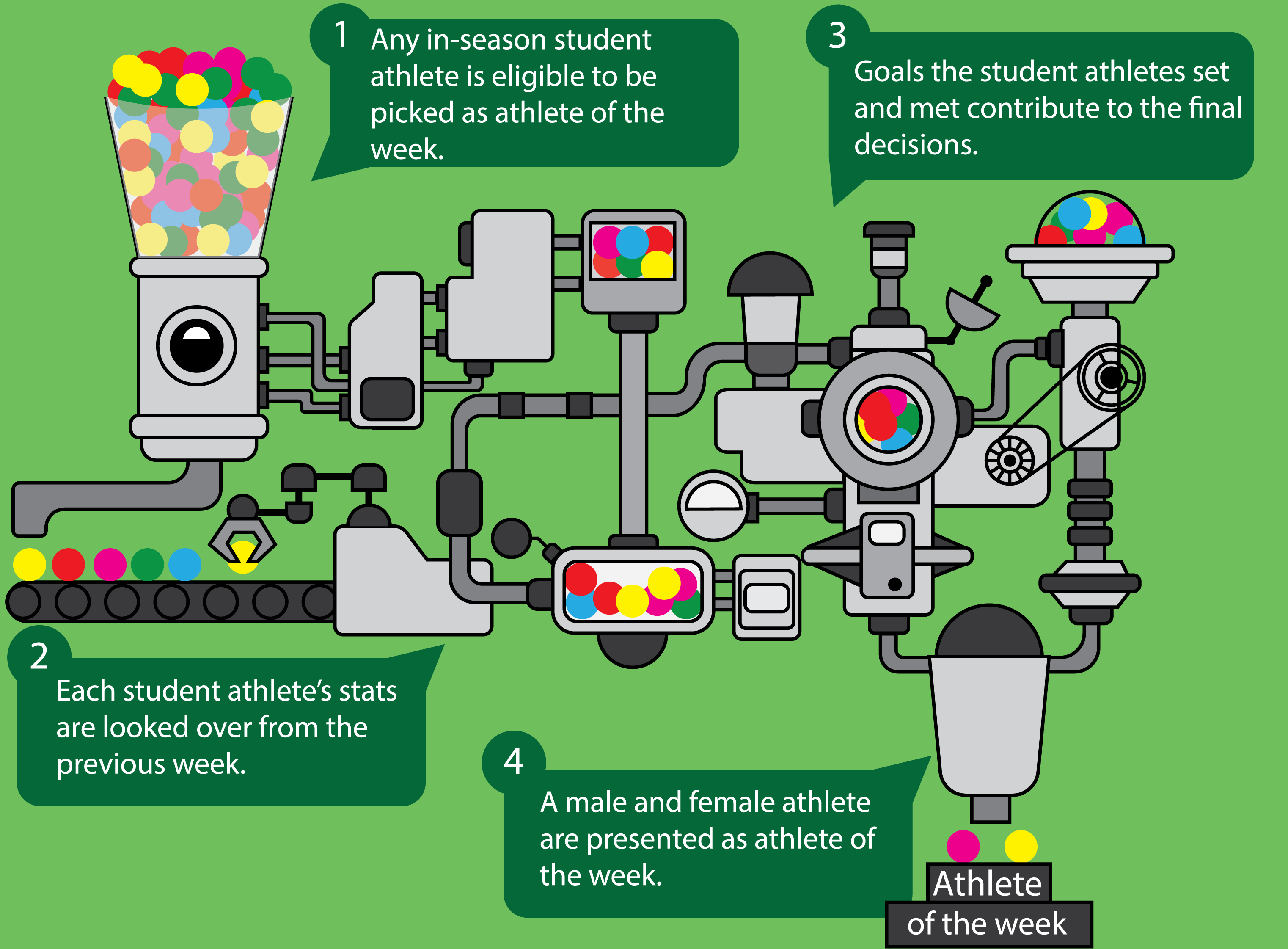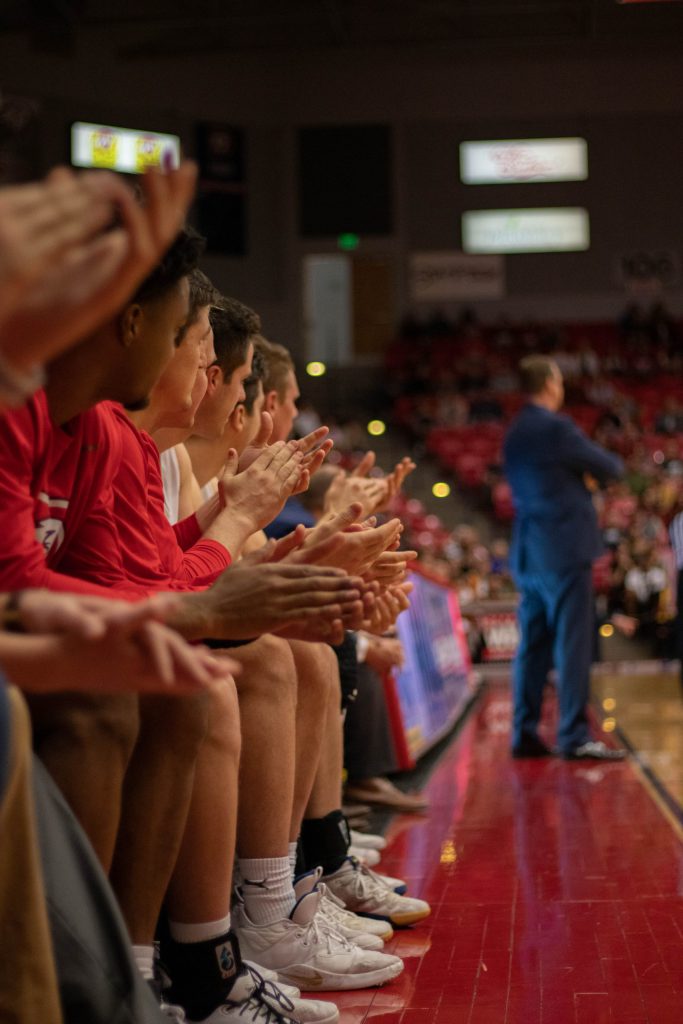At teaching-based universities with small classroom sizes like Dixie State University, students have opportunities to connect with impactful faculty members one-on-one.
Professors like Dr. Marius Van Der Merwe and Dr. Jeremy Young are just two of the interesting faculty members at DSU who students have the chance to connect with.
Van Der Merwe is a professor in biological sciences who received his education at the University of Pretoria in South Africa, his home country, and his doctorate at the University of Illinois at Chicago. Van Der Merwe taught for three years at the Claremont Colleges in Los Angeles before teaching at DSU.
The Claremont Colleges, a private consortium of seven schools of higher education, are research-based institutions which for Van Der Merwe, offers an interesting comparison with DSU. Van Der Merwe said it is not practical for DSU to offer every student some undergraduate research experience, but it does offer the opportunity for professors to fully invest themselves in their teaching.
“I think often times the quality of teaching at teaching universities is actually better than at research institutions,” Van Der Merwe said.
Josie White, a freshman biology major from Delta, said enthusiasm is what makes Van Der Merwe’s teaching effective.
“[He] is very passionate about biology, and it is so encouraging to learn from him,” White said. “…it makes people very eager to work toward [their] goals.”
Van Der Merwe is not only passionate about ecology, but about biology as a field. He said he enjoys teaching a variety of subjects and keeping up to date with biology to continue his own learning and provide real-world connections for his students to make.
“If you start noticing what’s happening in the world around you, in my opinion, you can’t help but realize biology is where it’s at,” he said. “Biology is the field that’s changing the world we live in the most.”
Dr. Jeremy Young, assistant professor of history who has received a variety of awards, agreed DSU’s teaching-based quality is a strength because professors are able to focus on their teaching.
“A school like DSU is very focused on students and on their classroom experience and that’s wonderful for me,” Young said. “It’s very fulfilling to work with students who are interested in the material.”
Nevertheless, Young said professors face everyday challenges behind the scenes.
“There’s a lot of things we do that students don’t see,” Young said. “We serve on committees, do our own research, and go to conferences … getting it all done is a struggle.”
Young noticed DSU changing rapidly after just two years teaching here. Young noted with fast-paced transitions, come challenges. He said the university is growing, attracting more four year students and attracting more research-based professors, but the administration is doing a wonderful job helping everyone through the changes.
Young said he enjoys collaboratively working with students because he is constantly learning from them and witnessing their types of feedback and ways of thinking has shaped the way he teaches today.
Sallie Sullivan, a senior English major from St. George, said Dr. Young stood out to her because he finds interesting ways to teach and make lessons engaging, and he is always understanding and ready to help his students.
“He doesn’t just lecture; he encourages and expects students to discuss their ideas and opinions,” Sullivan said. “You can tell he is really passionate about teaching and cares about his students.”
Young specializes in 19th and 20th century American history, so teaching his Emergence of Modern America course comes naturally to him. Nevertheless, Young also enjoys a wide spectrum of subjects.
“I’m sort of a swiss army knife,” Young said. “I like the chance to teach different things at different times.”
Young is the author of “The Age of Charisma,” a book about charismatic leaders in the late 19th and early 20th century United States. His book focused on how being charismatic changed the dynamic between ordinary Americans and their political leaders. Young has always been fascinated by this time period and was motivated to learn why things happened the way they did.
Young said one of his strengths as an instructor is he’s fair and understanding with students, so he’s always willing to work around outside challenges his students may be facing.
Both Van Der Merwe and Young agreed another important factor in their teaching is their effort to make the material “come to life” and be more relatable for their students.



